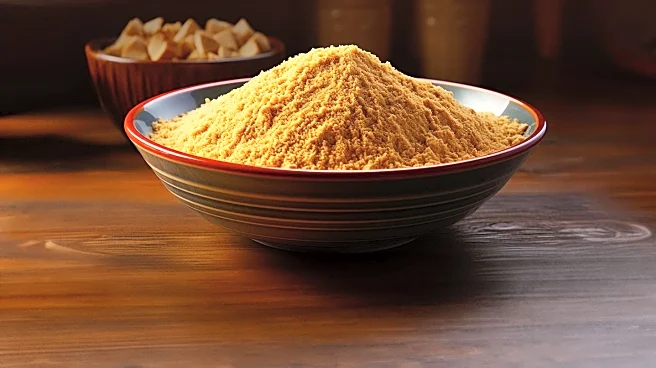What's Happening?
Researchers at the University of British Columbia have found that gut bacteria can digest cellulose-based thickening agents, contrary to previous beliefs. These agents, commonly found in foods like ketchup and salad dressing, were thought to pass through the digestive system unchanged. The study, led by Dr. Deepesh Panwar and published in the Journal of Bacteriology, reveals that natural polysaccharides in the diet activate enzymes on bacteria cell surfaces, enabling the digestion of artificial cellulose molecules. This discovery challenges the conventional understanding that these additives are inactive in the digestive process.
Why It's Important?
This research could have significant implications for nutrition and food science. Understanding how gut bacteria interact with food additives may lead to improved dietary recommendations and food formulations. The ability of gut bacteria to digest these thickeners suggests potential nutritional benefits, as they may serve as a source of sugar for bacterial growth. This could influence the development of new food products that optimize gut health and digestion. Additionally, the findings may prompt further investigation into the effects of food additives on human health, potentially leading to changes in food industry practices.
What's Next?
The next steps in this research involve exploring the ability of a wider range of human gut bacteria to digest cellulose derivatives. Researchers aim to study the potential nutritional effects of this digestion process in humans. This could lead to new insights into how dietary components interact with gut microbiota, influencing health outcomes. The findings may also encourage the food industry to reconsider the use of cellulose derivatives in products, potentially leading to innovations in food processing and formulation.









